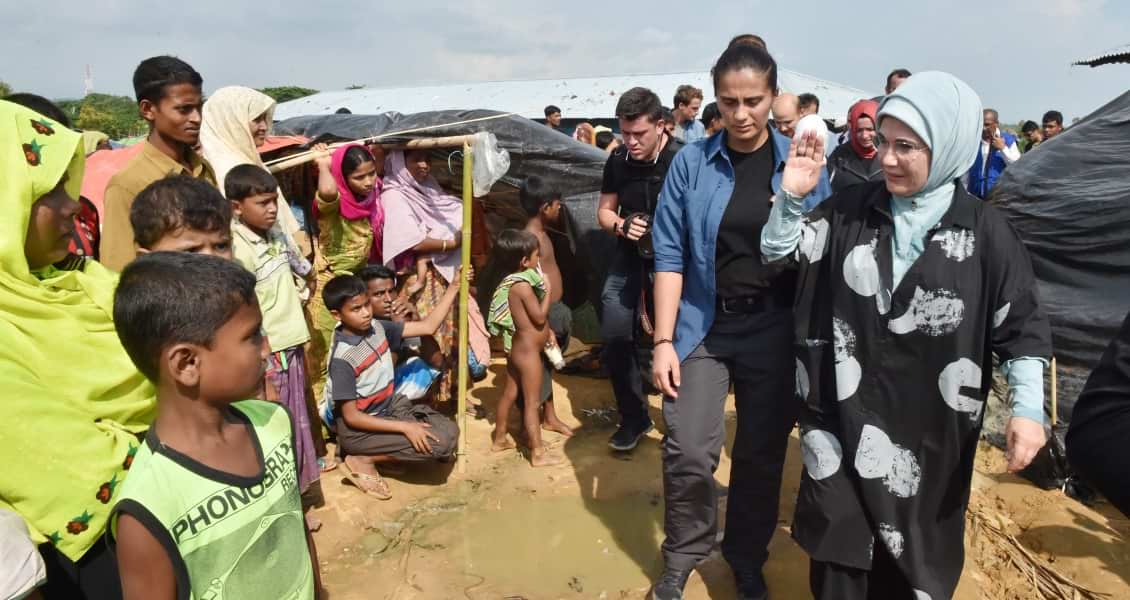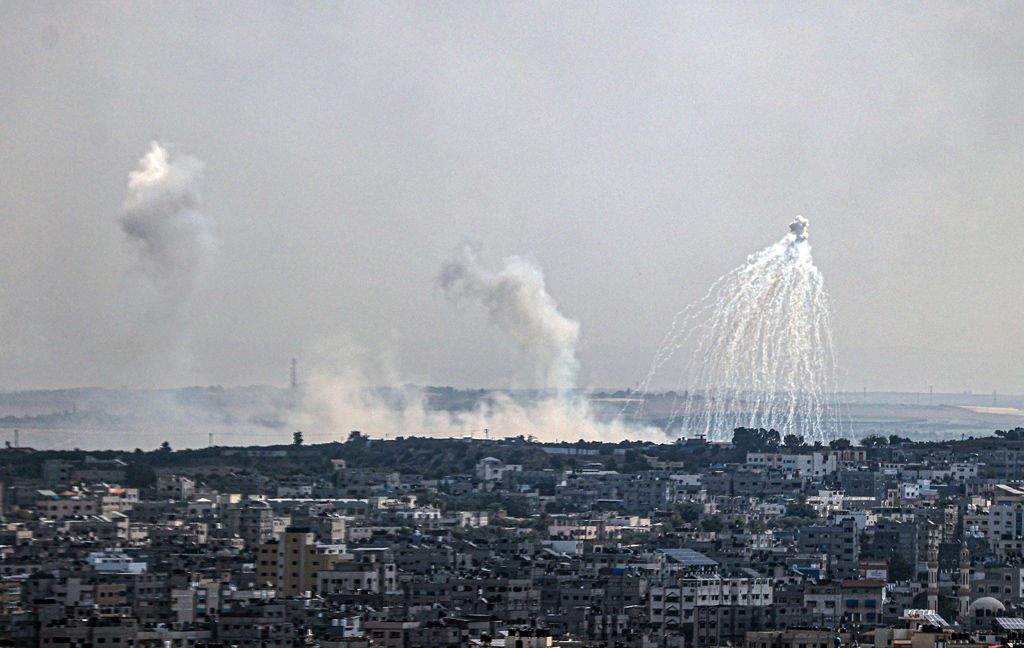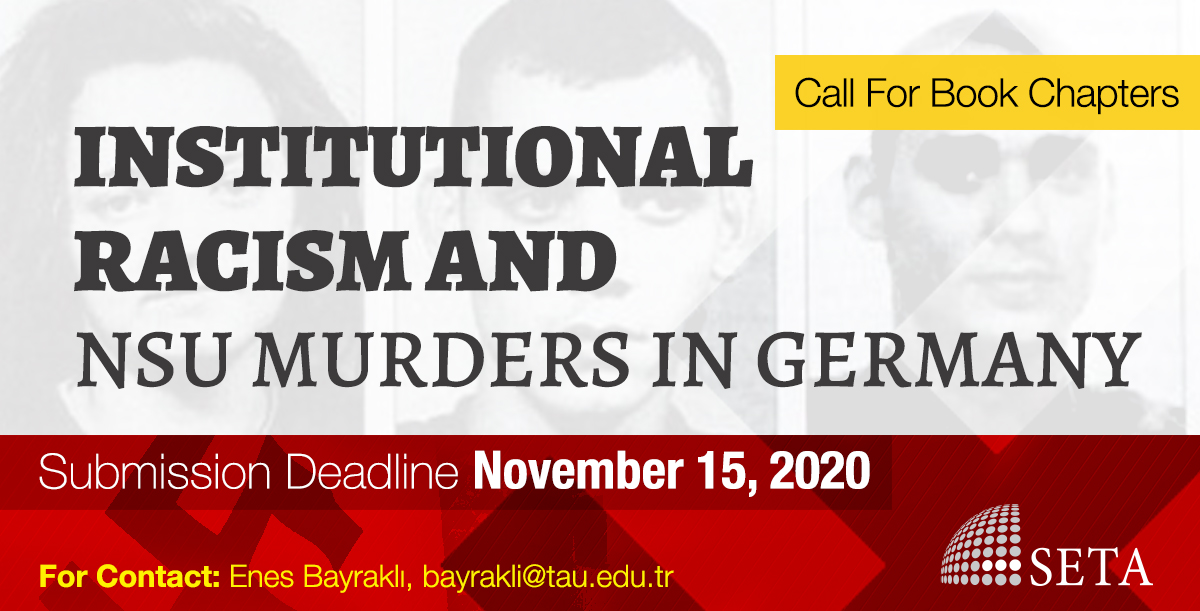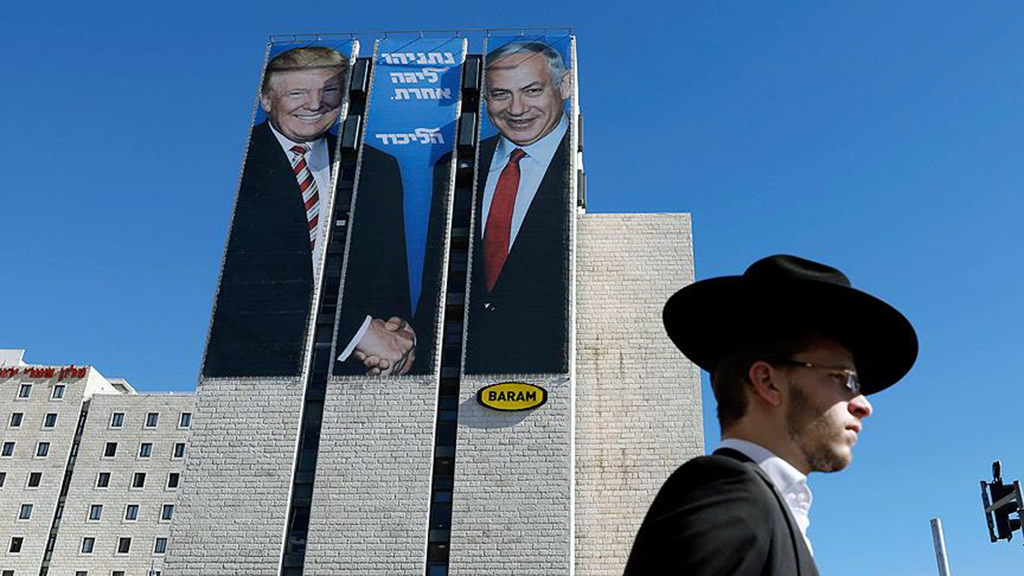
Turkey Leads Global Humanitarian Diplomacy for the Rohingya
In the wake of sorrowing international apathy, Turkey endeavors to spearhead efforts to coordinate humanitarian diplomacy to assist the Rohingya Muslims despite its geographical distance
Share
While astonishing forms of organized violence continues to be perpetrated by security forces and paramilitary groups unabated in the Rakhine State of Myanmar against the Rohingya Muslims, the lack of a strong reaction from the Muslim world and international community triggered widespread disillusionment. Despite official condemnations by several international bodies including the Organization of Islamic Cooperation and the Arab League, individual responses of predominantly Muslim states and the international community to the ongoing humanitarian disaster on the Myanmar-Bangladesh border remained rather muted. Since the outbreak of the intensive violence in late August, hundreds and thousands of people, predominantly women and children were forced to flee their homes and seek refuge in neighboring Bangladesh in inhumane conditions. In the absence of a comprehensive international response, the humanitarian crisis is constantly escalating. The U.N. agencies documented such a wide reservoir of mass rapes, organized killings, brutal beatings and disappearances that in a letter to the Security Council, U.N. Secretary-General António Guterres expressed his concern that escalating violence could spiral into a humanitarian catastrophe. He also indicated that "ethnic cleansing" in Myanmar has the potential to destabilize the whole region in Southeast Asia.
In the wake of sorrowing international apathy, Turkey endeavored to spearhead efforts to coordinate humanitarian diplomacy to assist the Rohingya Muslims despite her long geographical distance. Relying on a rich organizational expertise in relief work and institutional capacities of public and private institutions developed over the course of the Syrian refugee crisis, Turkey displayed the strongest national reaction to the plight of the Rohingya under the leadership of President Recep Tayyip Erdoğan. Erdoğan has personally contacted Myanmar leader Aung San Suu Kyi to enable the flow of urgent humanitarian aid (10,000 tons) via the Turkish Cooperation and Coordination Agency (TİKA) to the worst affected refugee groups. He also initiated telephone diplomacy as the president of the OIC Summit and contacted more than 30 heads of state and prime ministers to find an urgent solution to the humanitarian calamity. Meanwhile, his wife, First Lady Emine Erdoğan and son Bilal Erdoğan accompanied a delegation of Turkish ministers to Bangladesh in order to visit the Rohingya refugee camps and oversee the delivery of aid by TİKA and the Turkish Red Crescent in person. The visit became quite effective in bringing the urgency and seriousness of the situation to the attention of global mass media and public opinion. Erdoğan also pledged to bring the issue to the fore during deliberations in the forthcoming United Nations General Assembly in New York.
As the reclusive military government in Myanmar has asked all U.N. agencies to leave the country, Turkey's TİKA currently represents the only relief agency legally permitted to deliver international humanitarian assistance. This vital lifeline for the refugees shall be protected dearly. The plans are to establish a large refugee camp at Cox's Bazaar, the entry point of most of Rohingyan refugees to Bangladesh, which could host 30,000 people, while providing ambulances and emergency medical assistance. The political impasse at the U.N. Security Council, which stems from the geostrategic alignments of China and Russia alongside the Myanmar government, prevents a lasting solution to the issue and blocks U.N. efforts for humanitarian relief or peace building. But the faith of hundreds of thousands of innocent Rohingya who are perceived as national security threat by the Myanmar administration shall not be left to the vagaries of regional power calculations. Otherwise, great power politics aimed at generating safe energy transport routes from the Gulf of Bengal to inner China will discard an ethnic cleansing in massive proportions. Turkey's example in humanitarian diplomacy sets a "best practice" forward which shall be followed by Muslim countries and the virtuous members of the international community that are prepared to stand up for international law, human dignity and fundamental rights. All diplomatic channels at the U.N. and regional platforms shall be forced to ease the suffering of the Rohingya and to formulate a lasting solution to the issue.
Politically, on the other hand, it is crucial to pressurize and isolate the authoritarian government in Myanmar to make it clear that organized state violence and mass persecutions cannot be carried out with impunity. Finally, substantial moral pressure shall be placed by the international community to Aung San Suu Kyi, the de facto leader of Myanmar and largely overstated champion of human rights, that she needs to break her silence and apathy on the plight of the Rohingya Muslims if she wants to preserve the international reputation earned through the Sakharov and the Nobel Peace Prizes. Fundamental human rights shall be protected as a matter of principle across the board without any ethnic or religious discrimination.
[Daily Sabah, September 11, 2017]
Tags »
Related Articles







